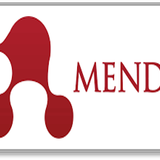A Model of Waste Management Improvement In Indonesia
DOI:
https://doi.org/10.24912/ja.v23i3.604Abstract
Waste management (garbage) is an important thing and cannot be negotiated by any companies. By applying a good waste management system, companies will be the companies that are pro-environment and they will be positively appreciated by their stakeholders. This study aims to examined the factors that influence the waste management and their impacts on the financial performance of the company through a model to determine the antecedents of commitment and waste management program that eventually lead to improve financial performance. This research was conducted by distributing questionnaires to 100 managers of companies that implement waste management programs. The results showed that there was a positive influence of awareness and legal compliance towards its environmental commitments and positive influence on the environmental commitment program of waste management and waste management programs towards the financial performance of the company. The waste management program could make the companies prepare their operation better and minimize their environment cost. This study also gives a boost to companies that wants to improve the company's financial performance through waste management program.
References
An, Zhang Xiuli. (2008). “Analysis of the Results of Environmental Performance Rating and Disclosure for Pollution Control Program in Changshu, China.” College of Environmental Sciences and Engineering, Peking University, Beijing, China.
Aloysius, V., D. Umar, and Daihani. (2012). “The Growing Demand For Alternative Solutions For Industrial Waste; The Experience of Indonesia.” Un publish paper.
Aloysius, V., & Daihani, D. U. (2011). Closing The Waste Gap In Indonesia: Harnessing Industrial Waste To Prevent Pollution And Conserve Non-Renewable Resources (No. 2011/29).
Baalbaki, I. B., and N. K. Malhotra. (1993). “Marketing Management Bases For International Market Segmentation: An Alternate Look At The Standardization / Customization Debate.” International Marketing Review, Vol. 10, No.1.
Blazovich, J. L., K.T. Smith, and L. M. Smith. (2013). “An Examination of Financial Performance and Risk of Environmentally Friendly 'Green' Companies.” Journal of Legal, Ethical and Regulatory Issues, Vol. 16 No. 1, pp 121-134.
Day, G. S. , and Paul J. H. Schoemker. (2011). “Innovation in Uncertain Markets: 10 Lessons for Green Technologies.” MIT Sloan Management Review, Vol. 52 No. 4, p.36-45.
Donaldson, T., and L. E. Prestone. (1995). “The Stakeholder Theory of the Corporation: Concepts, Evidence, and Implication.” The Academy of Management Review, Vol.20, No. 1, pp. 65-91.
Epstein, M.J. (1996). “Improving Environmental Management with Full Environmental Cost Accounting.” Environmental Quality Management, Autumn, pp. 11- 22.
Evans, Liu, and Stafford. (2009). “A facility-level Analysis of the Long-term Consequences of Environmental Auditing Among hazardous Waste Generators.” Robert Day School Working Paper No. 2009-16. Robert Day School of Economics and Finance.
Freeman, R. E. (1984). “Strategic Management: A Stakeholder Perspective.” Prentice-Hall, Englewoods Cliffs, NJ.
Garcia, J. H., S. Afsah., And T. Stenner. (2008). “What Kind of Firms Are More Sensitive to Public Disclosure Programs for Pollution Control? The Case of Indonesian PROPER Program.” Environment for Development, March.
Hasnas, J. (2013). Whither stakeholder theory? A guide for the perplexed revisited. Journal of Business Ethics, 112(1), 47-57.
Hair, J. F., Anderson R. E., R. L. Tatham and W. C. Black. (1995). “Multivariate Data Analysis, Prentice Hall.” Englewood Clifft, NJ
Hendry, J. R., and P. A. Vesilind. (2005). “Ethical Motivations for Green Business and Engineering.” Clean Technology Environment Policy, Vol. 7, pp. 252-258.
Hendry, J., and Vesilind, P. (2010). Ethical motivations for green business and engineering. IEEE Engineering Management Review, 2(38), 54-63.
Indonesian Ministry of Environment Statistics. (2006).
Indonesian-German Environmental Program, Centre for Research on Energy Policy, Institute Technology Bandung. (2009). “Report prepared for Public-Private-Partnership to establish National Guidelines program for co-processing waste.” Jakarta.
Joreskog, K. G., and D. Sorbom. (1993). “Latent Variable scores and Their Uses.” From: http://www.ssicentral.com/lisrel/column6.html.
Macauley, M. K. (2009). “Waste Not, Want Not: Economic and Legal Challenger of Regulation-Induced Changes in Waste Technology and Management t. Resources For The Future, Discussion paper.” RFF DP 09-11.By Business Size. Journal of International Business Research, Vol. 12, No. 1, pp47-56.
Ming, Tin Tzai, Min L. Cheung, S. T. Chen, and Chen H. P. (2012). “The Effect assessment of Firm Environmental Strategy and Customer Environmental conscious on Green Product Development.” Environment Monitoring Asses, spring 4435-4447.
Nunnally, Jum C. (1978). “Psychometric Theory.” 2 Ed. New York: McGraw-Hill.
Onkila, T., K. Joenseen, and M. Koskela. (2012). “How Corporation-Stakeholder Interaction is Reported in Environmental Issues?” Comparative Case Study of Environmental Reporting in a Financing, Transportation, and Energy Firm.
Podsakof, P. M., S. B. Mackenzie, J. Y. Lee, and H. D. Podsakof. (2003). “Common method biases in Behavioral Research: A Critical Review of the Literature and Recommended Remedies.” Journal of Applied Psychology, Vol. 88, No. 5, 879-903.
Podsakoff, P. M., and D. W. Organ. (1986). “Self-reports in organizational research: Problems and prospects.” Journal of Management, 12, 69-82.
Richa, and K. Sarkar. (2014). “An Elementary Approach on awareness of Green Practices: In Indian context.” Journal of Asia Entrepreneurship and Sustainability, Vol. X, issue 1, pp. 89-100.
Robinson, S., and H. A. Stubberud. (2013). “Green innovation in Germany: A Comparison By Business Size.” Journal of International Business Research, Vol. 12, No. 1, p. 47-56.
Have now, Uma. (2003). “Research methods for business: A skill building approach.” 4th edition, John Wiley & Sons.
Sharma, B., and D. Gadenne. (2014). “Consumers' attitude, green practices, demographic and social influences, and government policies: An empirical investigation of Reviews their relationships.” Journal of New Business Ideas &Trends, Vol. 12, No. 2, pp. 22-36.
Stafford, S. L. (2007). “Can consumers enforce environmental regulations? The role of the market in hazardous waste regulation.” Journal of Regulation Economy, 31: 83-107.
Tsai, M.T., Chuang L. M., S.T. Chao, and H. P. Chang. (2012). “The Effect of Firm Environmental Assessment Strategy and Customer Environmental Conscious on Green Product Development.” Environment Monitoring Assessment , Springer, pp. 4435-4447.
Walker, Elizabeth A., J. Redmund, and M. Wills. (2010). “A Proposed Methodology to Promote Adoption of Green Production By Small Firms.” International Journal of Business Studies, Special Edition, Vol. 18, No. 1, p. 39-48.
Westerlund, M. (2013). “Green Business Models to Change the World: How Entrepreneurs Can Ride the Wave Sustainability?” Technology Innovation Management Review, p. 54-57.
Winsemius, P., and U. Guntram. (2002). “A thousand shades of green: Sustainable strategies for competitive advantage.” Earth scan Publications Ltd.
Wood, G. S., and D. Williamson. (2010). “The receptive Capacity of Firms and The Regulation of Ecological Modernization.” Starting ECPR Group's Regulatory Governance. Third Biennial conference, June 17-19 at University College Dublin.
Yaacob, M. R., and A. Zakaria. (2013). “Customers Awareness, Perception, and Future Prospects of Green Products in Pahang, Malaysia.” The Journal of Commerce, Vol.3, No. 2, pp. 1-10.
Downloads
Published
How to Cite
Issue
Section
License

This work is licensed under a Creative Commons Attribution-NonCommercial-ShareAlike 4.0 International License.
This journal provides immediate open access to its content on the principle that making research freely available to the public supports a greater global exchange of knowledge.

This work is licensed under a Creative Commons Attribution-NonCommercial-ShareAlike 4.0 International License



















